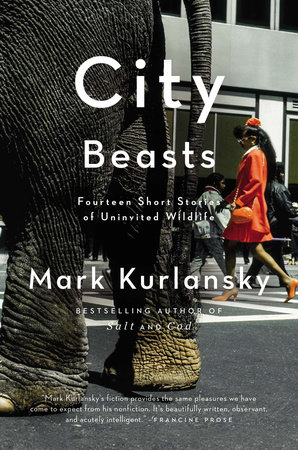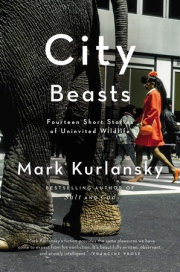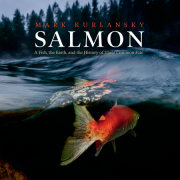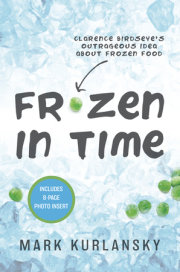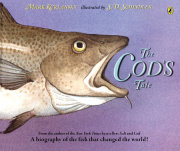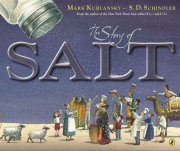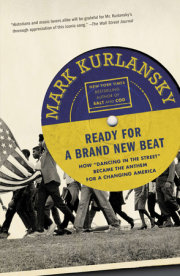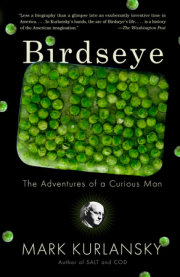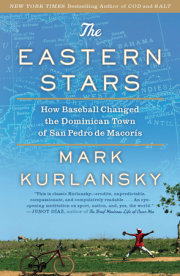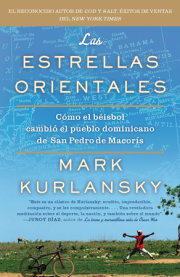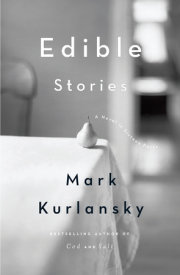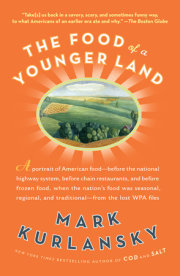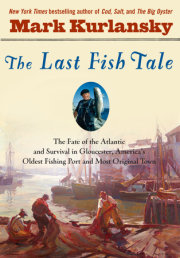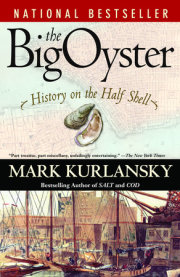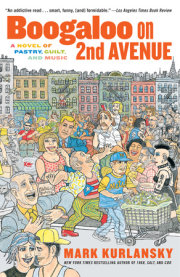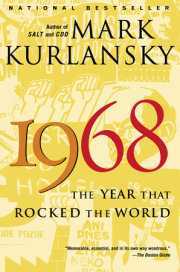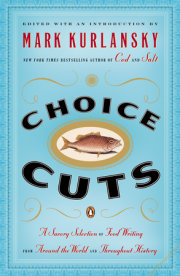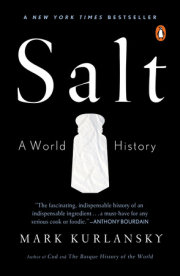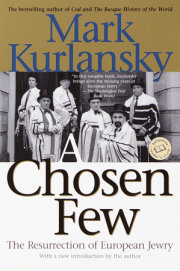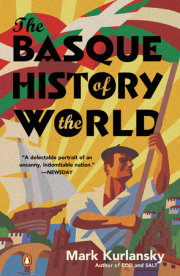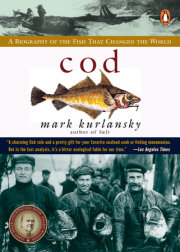ALSO BY MARK KURLANSKY
In time he understood that nature was not something outside the human world. The reverse is true. Nature is the real world, and humanity exists on islands within it.
ODD BIRDS IN NEW YORK
Some 6,000 years ago the people in Mesopotamia created the first written language. At first it was simple line drawings. They developed about 2,000 characters, all pictures of objects. After about 2,000 years the written language, now known as cuneiform, had developed into wedge-shaped symbols, dashes put together in different configurations. Each of these geometric characters represented an idea or often just a sound. Mesopotamian society revered the elite few who could write and read these texts, which were written on clay tablets. If these scribes were revered, birds were sacred animals because their feet left messages in clay that resembled cuneiform but were another language, one even the scribes could not read. Perhaps the messages were intended only for other birds.
Far up in the northern regions of New York City, in a place known as the Bronx, in what was called a zoo, was a huge birdcage made of metal, wrought and twisted and crafted to perfection. In the cage lived some of the most beautiful birds in the world, including a bright green quetzal from Guatemala. The quetzal didn’t know that he was originally from Guatemala, just like he didn’t know that he now lived in the Bronx. Nor did he understand the idea of a zoo. But he may have suspected that he was beautiful.
For most of his life he had lived in this tall cage with laurel branches to perch on and all the avocado he could eat. There were also other birds from different places or maybe the same place. He didn’t really know. This quetzal had been in the Bronx for so long that he no longer remembered the green highlands of his birth, and he was not unhappy where he was.
He was a quiet bird who kept to himself, often spending hours on a branch without moving until everyone forgot he was there. But he had a friendly look, his close-cropped fuzzy green plumes setting off his little round head. Hairless monkeys, some with hair on the tops of their heads, came to the cage to see the birds and they always liked the quetzal when they could spot him. He tried not to be spotted and they never harmed him.
Late at night there were screams of faraway monkeys—loud, shrill notes held for long seconds. But it was in the distance and not very troubling. The quetzal had a vague notion that nights were much noisier in his native land. He liked the quiet night in the Bronx. But now he was hearing an odd creak. He heard it again. He looked up at the bolted metal struts of the cage, the only sky he could remember, and suddenly the cage began to fall in. Birds screeched and squawked and chirped the news: the aviary was collapsing.
Metal was crashing to the ground louder than monkey screams, and feathers seemed to be everywhere. The quetzal had only one thought—he had to get in the air where it was safe. So he spread his green wings and showed the golden tips and unfurled his two-foot tail that was almost twice the length of his glowing green body.
It is difficult not to notice a quetzal in flight, which is why they prefer not to move too much. They fly with a long, undulating green feather tail, and the fine scarlet under feathers of the body show from below. The ancient peoples of Central America, the Mayans and the Aztecs, believed the quetzal was a god. They called it a winged snake. Even today its official name is the Resplendent Quetzal.
But now everyone was too busy to notice the resplendentness of the quetzal’s flight. Some of the birds went to the bottom of the cage, where there were huts and branches to hide under, and others took refuge in the nearby trees. But the Resplendent Quetzal took off for the Guatemalan highlands that were buried in his memory.
One of the birds in the chaos below was a scarlet ibis from the Caribbean island of Trinidad, where he was born in a dark, briny marsh known as the Caroni Swamp. From his very long beak to his even longer legs, he was a bright red, and the bright plumage at his head gave him a showy look, not completely inspiring trust. But despite the gaudiness, he was a startling beauty.
The scarlet ibis did not know what Trinidad was, but he did remember that he came from the Caroni Swamp. He would go there now except that he had no idea where it was. He remembered fishing for shrimp in black water with his long beak and the way his whole family, even cousins, would all settle into the same tree and enjoy the peace of sunset. Now there was no red light of sunset, only blackness and a bright round silver moon bigger than the eye of a giant.
He looked up and saw in the silver-bright light what the ancient Mayans had seen, the beauty of the red-and-green winged snake. The scarlet ibis himself was a god in the Caroni Swamp and the descendant of an ancient ibis that the Egyptians considered to be the moon god Thoth, who had invented language. He took three huge steps and folded his long thin legs under his red body and, spreading his enormous scarlet wings, took to the air, climbing over the Bronx until he was right next to the quetzal.
The two gods, the Winged Serpent and Thoth, felt good flying over the Bronx. The scarlet ibis felt that he was really flying for the first time in years, stretching his neck and his wings, feeling strong. He would not come down until he found the family tree in the Caroni Swamp. The winged snake could come with him if he wanted to.
But while he searched for the Caribbean swamp, the quetzal was in the highlands, dreaming. Flying and dreaming was what he was meant to do. Misty memories crept back, of a place where the little avocados were not scattered on the ground but grew on trees and the laurel was thick above the mountains and the clouds brushed the treetops above a red-and-black-soiled earth. These memories visited while he snaked through the air with his long tail.
The two flew into the night drunk, on their little sips of freedom.
* * *
For a time they were gods and they needed only this feeling of flight. But where were they going and how to get there? Each wondered why the other was joining him. Were these the quetzal’s highlands? Where was the ibis’s swamp? Alone in the sky feels good for only a short time. They needed family. They needed other birds. So then they became companions because that was what they needed. Where were all the other birds? The ibis could not remember ever being this alone.
The quetzal had only one relative in North America, a cousin in Arizona called the coppery-tailed trogon, who was also green and red and white. He, too, was said to be very beautiful, but he was a trogon, not a quetzal, and the quetzal didn’t know about him or Arizona. He knew only how to find the broken cage in the Bronx and he was considering returning.
The scarlet ibis, like most of New York, had relatives in Florida. The Florida relatives were pink flamingos, but to a scarlet ibis a pink flamingo is very pale, with bad eating habits. Instead of the pointed bill with which the ibis delicately picked through food, flamingos had a scoop for digging up mud, which they then sucked through strainers in their bills. He also had closer relatives on Long Island and in New Jersey, known as the glossy ibis, not as brightly colored and more common, but not known to him. He did not know where to find any birds and he, too, was considering heading back to the Bronx.
In truth, the scarlet ibis and the quetzal had been living a very easy life in the aviary, being fed gourmet meals and doing very little flying. Now they were getting tired and looked for a place to land. In the dark the expanse below shimmered like a forgotten moonlit sea somewhere that the ibis had once flown over.
But as the night sky turned purple and yellow on the edge of morning, they saw that this was something very different. They saw squares and boxes. They did not know that this was real estate, or how much it was worth in a seller’s market, that it was honeycombed with monkeys even tunneling under the ground. They didn’t even know that there were straight wide paths for machines that made monkeys move faster, only the machines moved too slowly because there were too many of them, or that there were panels selling things or posting warnings from Homeland Security. They knew none of this. All they knew was that this did not look like a good place for birds or for gods.
* * *
Ramona Pensky, who loved birds, was never going to give up her Fifth Avenue apartment. Where else in Manhattan could she wake up to birdsong? She went to court to keep her apartment facing the park. Once her lawyer revealed that her husband had used the World Trade Center attack, pretended to be caught downtown when he was two blocks away at Lydia Paulsen’s apartment, shacking up while others were dying—the lawyer was brilliant—the apartment was awarded to her even though she could barely afford it. Every morning she listened to the birds, put on her embroidered Barneys slippers, strolled to the window, and gazed into the park anxiously on the toes of her slender feet. She was a small, delicate woman, and it would be easy to say that she resembled a bird, though most birds were smaller and had rounder bodies than did she. She wondered why from her apartment overlooking the park, no matter how hard she looked, she could not see the birds but only heard them. Very small birds, she supposed.
* * *
The ibis and the quetzal spotted a spacious green rectangle. There were trees and lakes. The quetzal hoped the wooded hills might be his highlands and the scarlet ibis circled a marshy area to see if it was the Caroni Swamp. But his family tree wasn’t there, and though it was not yet dawn, all the ibises seemed to have already left.
The quetzal slowly descended onto a tree branch, letting his long tail float into position like a parachute gracefully landing. A very large crow, maybe a raven, was staring at the quetzal in a way that made him uncomfortable, so he moved to a higher branch. The raven had only been thinking that it might be fun to pull on that tail.
The scarlet ibis landed his bright red plumage in an even higher branch, a swath of color looking too large to be a fruit but very ripe. They sat in silence in the tree as the morning light began to butter the green grass below. They were both thinking the same thing. They were hungry. This meant something entirely different for each of them. The quetzal was looking up, as quetzals do, and the ibis was looking down, as is their habit. What crustaceans were in the waters? What fruits were on the trees?
Instead they saw birds in the grass. They had brown coats and rust-colored breasts, not bad-looking birds, the two in the tree thought, but not nearly so beautiful that they should be strutting and sticking their chests out. They had that eagerness characteristic of smaller birds.
From their tree perches the two watched to see what food the rust-breasted birds were finding. The quetzal hoped they were looking for avocados, though they were not looking in the trees. The scarlet ibis hoped they were looking for shrimp, but they were not looking in the canals or at the water’s edge. Then they realized.
The birds were eating worms. The quetzal and the scarlet ibis had seen birds eat bugs. In the Bronx they had seen the vermilion flycatcher—very quick. But you didn’t need to be quick to catch worms. The rust-breasted birds were very good at finding them, pulling them from the ground, holding the slithery things in their beaks and then swallowing them.
The ibis spread his scarlet wings and gently drifted to the ground. The quetzal followed. The scarlet ibis drilled the ground with his long beak and pulled out a worm. It was slippery and slithered off his beak. Hungry as he was, he did not really want to eat it. Suddenly they heard a group of voices like an ancient bird choir.
They looked up and saw that they were surrounded by angry little brown birds with rust chests. The brown birds did not want these two eating their worms. These brown rust-chested birds were robins and they seemed very proud of that. Their beaks turned almost red with pride—or was it anger?
It was clear that this was not the Caroni Swamp or the highlands and they did not belong there and these American birds, the robins, did. The robins were the first birds of spring and they were entitled to the worms. Every place has its rules and those rules usually favor the local birds, which is why most birds prefer not to travel. They would see if the pigeons could help. Pigeons always know how to find food.
* * *
Dr. Ifigenio Sanchez stared at the sky. He shouldn’t complain. He lost only two birds. Why those two? Why the ibis and the quetzal? Did they have stronger urges toward freedom than other birds? Stronger memories of home? Where would they go? They were not species that would adapt well to New York or the Northeast. Would they know to fly south? Dr. Sanchez suspected that they wouldn’t go far. It was an unusually warm spring, so they might not get sick. But would they find food? How determined were they to feel freedom? And how long would that last? He alerted the city, the Audubon Society, and several New York bird-watcher groups. Now he could only wait.
* * *
The scarlet ibis and the quetzal had run into pigeons before and nothing good had ever come of it. In the Bronx they didn’t even allow pigeons inside. But it was a bird they knew—knew a little, though they didn’t understand them. Dr. Sanchez always called them rock doves. They were unimaginative hunters and they had good and durable marriages, neither being particularly admired traits in the bird world. But pigeons, even without hunting, were fat and always had food. That was because they knew how to get food from the monkeys, a useful skill.
And so the scarlet ibis and the quetzal put down the robins’ worms and went looking for the pigeons. Neither had ever personally met a pigeon, but they had often seen them outside the aviary. They were not difficult to find. Pigeons, the opposite of quetzals, were always found around the hairless monkeys, and the ibis called them boat birds because they always came into the swamp in boats. It took only a one-minute flight to locate a path that the monkey/boat birds used, and as the ibis and quetzal came in closer they could see it was crowded with fat, gray pigeons. They lowered themselves to the ground with great reluctance because the ibis did not like to expose himself to boat birds out of their boats and the quetzal didn’t mind hairless monkeys outside the cage, but not in the open like this.
No sooner did the scarlet ibis have this thought while drifting down to the pavement than one of the boatless ones shouted to the other, “Look! It’s one of those birds we saw in Florida!”
They thought he was a flamingo, but the scarlet ibis didn’t catch the slight. Both the pigeons, who were really rock doves, and the monkeys, who were really humans, were staring at them. The pigeons immediately gathered around them—some skinny and worried, some fat with oily rolls on their necks. One of the fattest pigeons, a round, gray, tough-looking bird with a fat neck with the purple and green colors that oil makes in a rain puddle, thrust out his greasy rainbow chest as though to say “Welcome to pigeon park.”
Was this place just for pigeons? the quetzal wondered, and while he was wondering the fat pigeon cocked his blue-gray tail feathers up and defecated on the ground, which seemed to answer the quetzal’s question.
Quetzals have never thought well of indiscriminate defecation. A quetzal will eat fruit to fill up on the seeds and then choose carefully selected spots to drop them so that the fruit seeds will grow. But a pigeon, it seems, will relieve himself anywhere for no particular reason. In fact, the fat pigeon did it again.
There were rules. The robins got the first worms. The pigeons pooped where they liked. And how could they fit in with the rules here?
* * *
Eight people had already phoned Dr. Sanchez with sightings and he had a crew in a van heading out of the North Bronx for Central Park to grab those birds before they got sick. He wasn’t sure how accurate the sightings were. One said they saw a parrot. One said she saw two ibises—one scarlet and one green. One said he saw a quetzal swimming in the boat basin, which was something a quetzal wouldn’t do. Of course, Dr. Sanchez thought, there was always the possibility that they would stay in the park and learn how to adapt their lifestyle. He really couldn’t say if quetzals or ibises were good adapters. But it seemed likely to him that they would not survive in New York.
On the other hand, hawks, eagles, all kinds of exotic species have ended up in the park, and often, if they were tree dwellers, they ended up nesting high in the eaves of the older buildings along Central Park West and Fifth Avenue. He grabbed his binoculars.
* * *
The pigeons, when they were not fed by monkeys, got food through special arrangement with the sparrows. Sparrows do not have a good reputation. They are known for spending all of their time around the monkeys, begging for favors. But this is also true of these rock doves.
The quetzal watched a sparrow hop up to a large monkey eating a sandwich that she had taken out of a black bag. The quetzal had to admit that the sparrow was a fine-looking bird, brown-colored, plain and simple, which is how birds like their women. Dressing up and being vain, to birds, is very masculine. Feminine charm resided in its quiet, unpretentious appearance. The woman the sparrow hopped over to was overly adorned, but that was the way with monkey women.
Hop. Hop. Hop. Oh, look at me. Hop, hop. She had to hop around the monkey woman for three minutes before the woman noticed, but finally the woman started breaking off pieces of bread and throwing them at the sparrow. The sparrow bravely stood there, hopping to avoid these dangerous bready missiles being hurled in her direction. Hop. Hop. Hop.
Finally the fat pigeon snapped his wings, lifting himself in the air, and went over to where the sparrow was hopping and picked up most of the bread for himself and ate it.
“Oh, poor little sparrow,” said the monkey woman. “What about you?” She threw even more bread and the sparrow ate a few pieces, though other pigeons came over and ate most of them. The fat pigeon looked even fatter when he got back to the quetzal.
The scarlet ibis picked out a boatless one in a green plaid suit adorned with gold chains. It was unusual to find a male monkey who dressed with such masculine pride. Hop. Hop. Hop. Went the little sparrow irresistibly. The monkey held out his sandwich, the entire sandwich, but the sparrow kept hopping, waiting for crumbs.
This was too much for the scarlet ibis, who leapt over a little wooden fence, took to the air, swept down and plucked the entire sandwich in the tip of his long beak, and flew off while a chorus of angry pigeons and sparrows complained.
But it was a salami sandwich and an ibis would no more eat salami than eat a worm, so he tossed it to the other birds. He had to find some shrimp soon or his color would fade and he would start looking like a girl!
None of this suited the quetzal. He lived alone and plucked food where he found it and didn’t beg and didn’t eat with other birds. But . . .
There was a monkey man dressed in dull, dark colors, as though he were trying to look like a woman. Hop, hop, hop went the sparrow.
Suddenly the quetzal saw green. The man had an avocado sandwich. The quetzal did not need a strategy, he knew what to do. He unfurled his two-foot-long tail feather and leapt in the air. The human was so startled by this rare sight he did not notice all the avocado fall out of his sandwich to the ground, where it was quickly consumed by the pigeons. When the quetzal landed, the sparrows were finishing the last of the bread, the avocado was all eaten.
Birds don’t cry. They have no tears.
* * *
Ramona Pensky could see the whole thing from her window. She saw that Arab or whatever he was, tall and thin, an Ichabod Crane with a spyglass, pacing around in front of her building, looking in the windows, up on the roof. Why? What was he up to? She wasn’t going to let this happen to her again. She had been victim to one attack already. In her mind, her husband’s dalliances on the day of the World Trade Center attack made her a victim. Her lawyer had argued this and the idea had become fixed in her mind.
Signs had been posted all over the city saying “If you see something, say something,” and they gave a phone number that she had written down. Buses had signs on them boasting of the number of New Yorkers who had called. Two months ago in a snowstorm, out of desperation because she could not find a taxi, she took a subway and an announcement came over the loudspeaker asking her to report “any suspicious activity.” The announcement had been striking because the recording was clear and she could understand every word, unlike the useful announcements such as the one about the local train going express that would have saved her an unnecessary journey to the Bronx, had she been able to decipher it.
The piece of paper with the phone number was right where she’d left it on the breakfront.
She decided on a coy approach. “Don’t you think it’s strange that an Arab has been casing out my building with a spyglass?”
“A spyglass?”
“A spyglass,” she confirmed.
“Yes, that is strange.”
“I thought so, too.”
“What does it look like?”
“Tall, thin, big nose, black curly hair. An Arab.”
“No. The spyglass.”
“The spyglass?”
“You mean one of those things pirates use?”
“You think it is a pirate? Like from Somalia? They’re kidnappers, aren’t they?”
* * *
The quetzal was drunk. The ibis was feeling a little wobbly, but the quetzal was resplendently smashed. He fell out of a tree. In a situation like this it would have been a perfectly human thing to just go get drunk, but these birds were not human and that is not what an ibis normally does and it was certainly not the way of the quetzal. But it was becoming clear to them that they were not going to be able to survive on shrimp or on avocados. It was equally clear that this area was rich in food. Let the robins have their worms and the pigeons and sparrows their bread crumbs. Berries grew in the bushes, and small fruits and nuts hung from the trees. But much of this food had survived the winter and had slightly dried and fermented, and this seemed to be having a pronounced effect on their navigation systems. But they were not alone. They saw a titmouse staggering and a number of finches waddling awkwardly on branches. A brown creeper was so drunk he was feeding on a tree from the bottom up, whereas there is an unspoken code among birds that you always feed from the top down. And there was no excuse for the unsteady flickers.
* * *
Ramona Pensky wanted to see one of those signs that showed how many people had reported suspicious activities. She wished she had written the number down so that she could now see if the number had gone up. Had it gone up by one?
The police had been convinced that Dr. Ifigenio Sanchez was an Arab until he showed them his driver’s license and they noticed that he had a Spanish last name. They assumed that he did not speak English and began speaking very slowly. “Green card.”
“What?”
This was not going to be easy. They tried again slowly. “Where . . . is . . . your . . . gr-e-e-n card? Dónde está?”
“I don’t have a green card.”
The two policemen nodded knowingly at each other.
“I’m a U.S. citizen. I work for the Bronx Zoo.”
But they were no longer listening, because in their minds now, he did not speak English. They just repeated in slowly unfolding syllables, “DO-min-I-CAN-no.”
“I’m from Costa Rica, but I am a naturalized citizen.”
Dr. Sanchez explained about his position at the zoo, his citizenship, where he kept a passport to prove it, who could be called to speak for him. The two plump men faced him with their hands on thick black belts that seemed to have the entire contents of a hardware store hanging from them.
There is a point in a conversation when one side is alone because the other side has stopped listening. The two faces simply go blank, the light goes out, and no further transmissions will be received.
Dr. Sanchez recognized that this was the situation he now found himself in and so he stopped talking. He knew that he could reason with them at the police station, but by the time he got the police to listen, the quetzal could be dead. There were hawks to worry about—Cooper’s, sharp-shinned, even some red-tailed.
* * *
Lolly Messerheim had dressed in her bird-watching khakis with all the big pockets. Actually it had big everything, because she had gotten the whole outfit at Filene’s for only $25, but it was a size or two too large, which made her look smaller than she really was, which she didn’t mind because, as the chart in her bathroom clearly showed, she had too much weight for her height. She had pens, pencils, a sketchbook, field guides, a camera, long lenses, and her notebook, in which she checked off her sightings. She had gotten up early to catch the visiting warblers that had come in the night before and glutted themselves on the celebrated bugs of Manhattan before continuing on to the warbler orgies of the northern grounds—a happy time for warblers and for Lolly Messerheim, who had already checked off several new species in her book. She had spotted a little black-and-white eastern phoebe on a bush, wagging its tail, about to pounce on a fly. Egotistical little birds, they are easy to identify because they tell you their name.
“Fee-bee, fee-bee.”
In excitement and not without humor, Lolly chimed back, “Lo-lee, lo-lee,” but then she found a yellow-rumped warbler with that little spot of color, a little greenish worm-eating warbler who didn’t care about the bugs, and a little chubby yellow pine warbler. Or it might have been a palm warbler. It took off before she could see if it had that touch of red on the head. But she got some photos and she would look later before marking her book. She even saw a prairie warbler, which weren’t usually in the park this early in the spring. She supposed this was because it was so unusually warm, which led her to reflections on the impact of climate change on bird cycles. Something to think about.
The warblers were waking up and leaving, off to have mad sex in Canada. Who could blame them? More would come in tonight.
Then Lolly saw the kind of sight that leaves no New Yorker indifferent.
There was an open table at the restaurant by the boat basin. It was out on a wooden deck over the water. People wait for hours for such a table, but there it was with no line on this first warm, sunny day of spring. Like a warbler headed north for a rendezvous, she tucked in her tail and darted straight for the table, not waiting to be seated. She flung her camera, binoculars, and notebook on the table to leave no doubt about possession. New Yorkers, like birds in egg-laying season, are very clear on issues of territory.
She ordered shrimp and a bottle of California chardonnay. It felt good to sip the wine even though it was much too oaky, tasted a bit like sucking on a tree. But Californians didn’t want you to miss the oak. She examined her photos. She could see the corner of a rust-colored cap on that one warbler. She opened her book and checked off palm warbler. Such fast little creatures, she was pleased to have gotten the shot. And even more pleased to check it in her notebook, the first palm warbler she had ever sighted. She sipped the chardonnay and felt the warm sun. If she had been a warbler, she would have wagged her tail.
Not far away, a slightly inebriated scarlet ibis was creating a sensation splashing in the water. There were a few small crustaceans he could eat, but his coordination was off from the fermented fruit and he wasn’t landing quite right. The commotion of all the monkeys frightened the quetzal and he remained in the upper branches of the tallest trees. But the scarlet ibis was not worried because now the people were back in their boats where they belonged.
And then from high up, the quetzal spied something. The monkeys, the ones not in the boats, were sitting around eating—unbelievably—shrimp and avocados. Now the ibis saw it, too. Stealing food from monkeys was a dangerous proposition, but this could not be passed up.
Still tipsy and full of excitement, the scarlet ibis swept across tables, knocking over glasses, causing screams of panic. Thoth run amok. But he was getting his shrimp.
The quetzal, watching from the heights, had not gotten so alcohol foolish that he was about to go near these flailing monkeys. Still, several plates had been knocked to the deck and large chunks of chartreuse-and-yellow avocado were lying there, unobserved.
Harold Rab was an attorney, a trial lawyer, a big one. He was six feet, five inches tall and was dressed entirely in white, which made him look even larger in the sunlight. He was discussing his case in the headphones of his cellphone in such a loud voice, explaining what he needed and where, that everyone could hear what a big case it was. In fact, management had been thinking of asking him to turn off his phone or leave.
But when the ibis swooped in clumsily for his shrimp, the big red bird became tangled in the headphones and, panicking, took off quickly, carrying the headphones with him, the cellphone dangling below like a ball and chain. The ibis shook it off and it sank into the boat basin, temporarily delaying the case’s defense strategy.
“Son of a bitch,” shouted Harold Rab in a throaty roar that made Lolly look in his direction. He was now standing with his tennis racket in a batter’s stance as a beautiful green bird . . . Oh my God, Lolly thought, it’s a quetzal . . .
She had never seen a quetzal. She had once spent ten days in Guatemala trying to find one, but she never did. Now this large, angry man with the tennis racket seemed about to kill one. She had no time to think. She grabbed the bottle of chardonnay, ran over to the man, reached up and slammed the bottle as hard as she could on the man’s head.
It was not what she had expected. The bottle did not break the way it always does in the movies. Instead it bounced off his head with a sickening thud, like a wooden club hitting rubber. Was the wine too oaky? Would a bottle of sauvignon blanc have worked better? Just a passing thought that she quickly dismissed.
. All rights reserved. No part of this excerpt may be reproduced or reprinted without permission in writing from the publisher.

